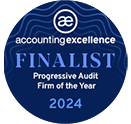
Keeping abreast of the updates to anti-money laundering (AML) laws is one of the key challenges facing legal firms.
The reach of these regulations stretches from global law firms to smaller practices, so it is important for all legal professionals to comply.
Here are the key changes to AML guidance you need to know about and how you can ensure your firm remains compliant.
Economic Crime Levy
Legal firms must register online to pay the economic crime (anti-money laundering) levy (ECL) if your annual turnover exceeds £10.2 million.
The ECL is payable to HM Revenue & Customs and is due each year your turnover exceeds the threshold amount.
If you are dual-regulated by the Financial Conduct Authority (FCA) and are a professional body supervisor, you must use your FCA credentials to register.
Supply chain risk
The updated guidance highlights the importance of understanding the purpose of the service you are providing, and who is ultimately benefiting from it, when it comes to identifying and mitigating supply chain risks.
You will now be required to make preliminary enquiries of your client to help you understand the purpose of the whole transaction and how your instructions fit into the overall supply chain.
If necessary, you must look beyond your own services to understand the whole of the transaction.
For example, taking to steps to establish the role of other professionals in the supply chain helps you to ensure that their services fit with your understanding of the client’s aims.
Identity verification
When carrying out AML checks, you are now required to obtain proof of name, address and date of birth.
This is a change from the previous regulations, where obtaining either the name and address or the name and date of birth was sufficient.
How to stay compliant with AML regulations
Whatever the size of your law firm, we advise you to take a holistic approach to your AML responsibilities.
Lack of due diligence is the main cause of AML issues, so make sure you put clear policies, procedures, processes, and documentation in place that are in line with the nature, size, and risk profile of your firm.
Additionally, the content and delivery of AML training are both extremely important when it comes to compliance with AML regulations.
Incorporate practical elements to make training more engaging and utilise computerised tests and training logs to check staff have understood their training.
For further advice on the latest changes to anti-money laundering regulations, please get in touch.














